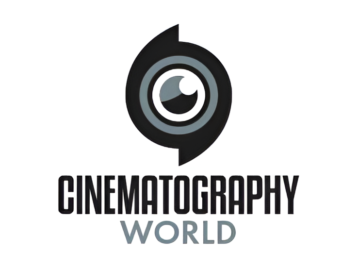RUSSIA
Dear colleagues, friends.
In this note we tried to give brief information on situation with copyrights in Russia, made short historical digression and spoke about today’s condition of Russian moviemaking which directly dictates both position of cinematographers and realization of their authorship in modern conditions.
As it was found out the authorship of cinematographers existed in the USSR and then and in Russian Federation from immemorial time. However, the right was a some kind of virtual.
The film industry during Soviet times, as well as all other industries belonged to the state. Ministry of Cinematography was the general producer of all soviet films. Special commission accepted and estimated result.
DoP consisted of several groups – permanent members of studios staff, invited from other studios or invited to the project under the contract. In case of the staff the cinematographer was simply appointed to the project. In case of sending out on business or the invitation the contract was concluded but in all cases there was not a single mention concerning cinematographer’s authorship.
Beginning the project the DoP, as well as all workers of group from the moment of appointment to a picture or contract signing received the certain salary according to the rating which was also awarded by Ministry of Cinema. However, in difference from the second link, after acceptance of film by state commission certain prize-winning sum was paid to the DoP. This sum not directly confirmed that cinematographer was the creative specialist and possessed an author’s rights. In comparison with the salary the sum was considerable and consequently his job was considered prestigious, well paid and respected.
Naturally, with development of technology of film production, coming of video and mainly because of appearance of the playback on the set the prestige of a profession start to decrease gradually. The mystical figure of the semi-wizard, the unique person on a set, the only who knows what was in a frame and will be on screen. DoP’s action begins to lose mystery and starts to be exposed more and more to criticism, while making mistakes in complicated pans and possible imperfection of the light scheme (partly strengthened by imperfection of the video control). And then the trade of the cameraman began to be perceived as secondary, more technical and less creative with all the ensuing consequences mainly regarding author’s rights.
After transformation of the Soviet state of socialism into the state of brutal capitalism the trade of the cinematographer was losing the prestige more and more. The main reason of it was inflow to movie industry absolutely ignoramuses with thick purses which named itself directors and producers and have begun to create in extreme quantities poor projects with oceans of blood and the prostitutes which were similar as twins. That was coming of criminal money to cinema just for washing. Their owners didn’t need films of high quality firstly because they understood nothing in the business, but mainly because wanted to legalize their money. And artistic level of Post-Soviet cinema began to fall rapidly. Today we are to establish with horror, how much Soviet cinema with all its ideological problems, in the conditions of the most severe censorship was in overwhelming majority extremely original and talented. And that regards not the recognized masterpieces of the great soviet directors, such as Tarkovsky, Bondarchuk, Mikhalkov’s and many others. But it concerns the plain, everyday’s films which have been done not for festivals but and for ordinary spectators, workers and peasants. And camerawork there was always at the highest technical and creative level. And it couldn’t be different because these films have been shot by real professionals, who had been graduated from cinema school of high class, who had come along all steps of cinematographer’s trade and who extremely had loved this profession.
The state invested in film industry and it demanded that pictures were of high quality. And first of all it regarded images, which were the first indicator of quality. Certainly, there were problems. And above all it was absolutely deadlock idea to create our own technical base, absolutely independent and self-sufficient. The result has appeared pitiable. Our films, our cameras, our lighting devices became outdated at a stage of long-term working out and the coordination of drawings, and also both the film chemistry and thin technology of making emulsion were as well as Soviet electronics are doomed to a failure. But even on such equipment our senior colleagues managed to receive tremendous results. They courageously interfered with process of development, highlighted a film, changed its contrast and width. Nevertheless some kind of west equipment like Arriflex and Movicam and also Kodak went into production. In this case the results reached the highest level. Today we still admire with the genius of our glorified DoP’s such as P. Lebeshev, G.Rerberg, V.Yusov, Knjazhinsky and many others.
And then capitalism which all of us waited with hope, yet not knowing what troubles it would bring suddenly came. Now we have the sad statistics. At socialism our cinematography was fabulously profitable, millions of our citizens looked our films in cinema. Now in our semi-empty film theatres are demonstrated mainly mediocre American pictures. Our national cinematography is, with rare exception, deeply unprofitable. Annually the state supports several projects with small grants, which are completely not enough for serious production. If producer manage to find some extra sum, and be hardly sure in success of the film his main earnings is just saving as much money as he can, and in this case everybody have to forget about artistic quality. No ideas, no money, as a result there is no real entertainment, consequently no spectators, so no money comes back. All these actually are links of one chain. Our television is filled up with cheap soap operas which decompose spectators, acculturates to spectators disgusting taste push them away from screen art. Rare blockbusters which are done with money from unknown sources can become only like usual Hollywood product which yet has not justified itself by opening nights in Europe and America. Distributors only try to collect money from miserable Russian spectators, defraying tremendous expenses on the account of the half-starved and deceived people.
And Russian DoPs have to stay alive and do their job in such circumstances. The most foolishness thing is that our new producers outwardly try to look civilized and in our contracts there are points where the copyright is mentioned in connection with intellectual property, which we obliged to sell for sums which become less and less from day to day. They explain the decreasing by crisis, bad times. Nobody go to cinema, they say, where can we take money for production from? But nobody looks national films because there nothing to see, the budget was dissolved on the way to production. So is necessary to shoot somehow, just for report! A nightmare!
The cinematographers authorship turns today in ridicule. We sell our author’s rights for extremely low sums, practically for the minimum salary. Our working day consists of 12 hours, not considering trip to location, frequently it lasts for 14, 16 hours of 6 days per week. The seventh day as all of us know leaves on rechoosing location, seeing rushes and the solving various problems of production. Today the serials for TV channels became the most popular kind of Production. Such projects last sometimes by that schedule for 6 – 8 months. And this is only shooting period. There a lot of reasons for such overworking. It can be actor’s schedule, expensive sets, and mistakes of planning. But it is almost impossible to get extra payment for overworking. Producer’s explanation is very simple. “You are making your light too slowly” –they say. They do not pay attention neither to complexity of a scene, nor professional disgust for poor-quality light, neither absence of groups of preparation, nor constant change of schedules, nor removing from one location to another within the working day in the conditions of terrible traffic and absence of parking places on locations.
Until 1993 all rights to films in USSR belong to the state. In 1993the State transferred these rights to studios who had fulfilled the production. Cinematographers and art directors were recognized as participants in distributions of profit on displays of these pictures at cinema and on TV. The government has obliged distributors and television channels to pay 3,5 percent from display cost to cinematographers. If you though ask, whether I have received a cent for more than 10 pictures which I had done before this year which were regularly shown on TV I have to say surely no! There is a decision but there no way to control the execution. The same is with all my colleagues. What to say about the authorship when even government’s orders are not carried out. And there is still no organization to supervise and collect this percentage.
Up to a moment our Guild is not ready to fight in court with television channels with its lawyers and commercials money. Our country is not the State of law yet. Our court is the part of it. To fight for your money you have to refuse of anything else and spend to it your whole life. And what about shooting?
In USSR it was tradition to unite creative people in creative societies. There were unions of writers, composers, artists. One of such a society was the The League of Cinematographers in which people of different cinema specialities have been united. As the cinema at that time was actually very profitable and the League got the part of incomes it became rather rich. With these money there was built a lot of rest houses and creativity houses where the members can rest and work almost free of charge. In the House of Cinema members of League and soviet elite visited trade screening of prohibited foreign films and shelves national films. To become a member you have to film something significant and a lot. To be a member was a prestige.
Cinematographers were united within League as separate section, as other professions. Later sections were been rename to Guilds. So Russian Guild of Cinematographers appeared.
The League was a certain model of democratic management in conditions of the absolute totalitarian state with congresses, plenum, sessions e.c. where all decisions on inner life of League have been made by majority of members. At the head there were secretaries most often from directors, some time there were been actors and even cinematographers. It was honorable and profitable to be a secretary and furthermore the chairman. The elected chairman immediately obtains the level of most authoritative officials though was the representative only of a certain public organization. Government was highly attentive to his opinion concerning cinema questions and he can influence on acceptance of any decision on this theme. For example start series of children’s films, persuade Ministry of Cinematography to buy several Arriflex.
It was prestigious to be a member of the Union. Creative meetings, modish screenings, acquaintances which put to creative alliances between different cinema professions, an exchange of experience, discussions, disputes, that was the signification of the League. And the most independent and special was Guild of cinematographers. It is known very well, that cinematographers do not envy each other. They prefer to help.
After Russian Guild was accepted as part of Imago and under influence of success of European colleagues in recognition their rights our Guild led by Igor Klebanov, decided to go after our Polish colleagues and there chairman Andrzej Jaroshevich. We have addressed to parliament, with the request to make the amendment to the law on inclusion cinematographers and artists in number of full authors along with script writers, directors and composers. We tried to prove the right to the amendment by degree of cinematographer’s participation in film-making process which could confirm the most popular and respected directors and script writers of our country. In our archive there are references of these directors and script writers which highly appreciate the contribution of cinematographers in creation films. They affirm that the artistic quality of films straightly depends upon capabilities of cinematographer, his talent can directly lift picture level so high, that by right he can be allocated in a separate author’s category. Directors asserted that cinematographers are their colleagues and friends, full participants of creative process as well as themselves and accordingly can count on the share from realization of this product.
There were a lot of deputies of Parliament who supported our request. Everything was ready for voting. We were sure in success. The only thing we need was appeal of Chairman of League to Parliament. At this time the Chairman was our famous director, whose works we admired and who understood very well in imaging. All his life he worked with best Russian cinematographers and was real friend of them. But he said no! His explanation was simple. If cinematographer is the author of the pan, that means that director can’t cut it without his permission. His opinion stood against tenth’s others. But it was considered. As a result the League didn’t support cinematographers and Parliament didn’t ratify the amendment. That how we have lost. We missed our chance. It’s very difficult to begin procedure again, almost impossible, and we need very powerful reasons to repeat parliament action.
Today the realization of cinematographer’s authorship fully belongs to producers. Actually it’s just some financial compensation which you are to fight for at the beginning of every project. The size of such compensation is exclusively a subject of the arrangement of the producer and the author.
In practice, the Russian producers do not undertake the task to get profit from films distribution. Film production mainly is made at the expense of grants from the state budget. The State does not demand the return. In these circumstances the profit of the producer develops of economy on the film budget. And as consequence, the right of the author to receive reward for realization his rights to a film remains only as right and has no practical application.
And here, after of almost 10 years lapse from the moment of the beginning of attempt to protect the author’s right it’s clear that we could obtained nothing. And in the conditions of obvious decrease of producer’s interest to quality of films, including quality of the image, and inflow to Russia a large quantity of unemployed from formerly Soviet republics and not members of our Guild who are ready to work literally for pennies, conversation on the authorship apparently has to be postponed for uncertain time. It can be arisen again only in case of an obvious victory of our European colleagues. Only such a victory could become an argument in disputes on authorship because our progressive management aspire look like Europeans. So the law must be the same. If not our country again remains the country of snow and bears
In the circumstances, at which the state has legislatively settled main principles of mutual relations between the parties in film production, the professional unions instead of any creative have to carry out protection of interests of authors as social rights of their direct members.
Till now these unions does not exist. They just should be created. But could they protect cinematographers not only as employed workers but as authors nobody can affirm up to the moment. Let’s wait and see!






























